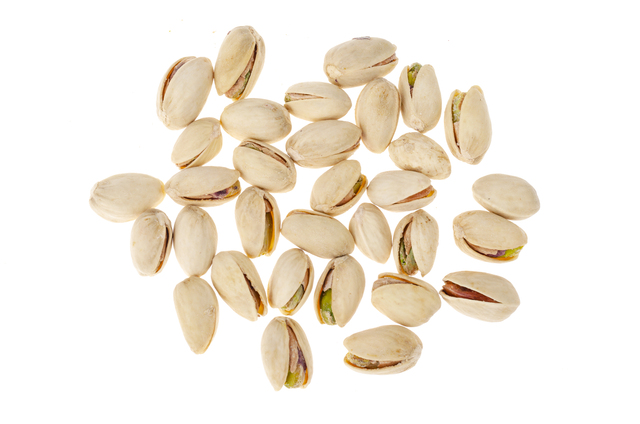Can Dogs Eat Pistachios?
Hello fellow dog lovers, it’s always a joy to talk about our furry friends and discuss the intricacies of their diet. You know how it is – you’re enjoying a handful of pistachios, and those puppy eyes are begging for a share. The question is, can dogs eat pistachios? Let’s delve into this.
Understanding Dogs’ Dietary Needs
As dog enthusiasts, we’re well aware that our pets’ dietary needs are vastly different from ours. While there are some human foods dogs can safely enjoy, there are others that can pose serious health risks.
Dogs and Nuts: A Closer Look
Nuts and dogs can have a somewhat tricky relationship. While they seem like a tasty and protein-rich snack option, not all nuts are created equal in terms of safety and nutritional value for our canine friends.
First, it’s crucial to realize that dogs have a very different metabolic rate and digestive system compared to humans. Their bodies don’t process certain foods as efficiently as ours, which can lead to various health issues. Nuts, owing to their high fat and protein content, can be particularly challenging for dogs to digest.
Different types of nuts also have varying effects on dogs. Some, like peanuts and cashews, are generally safe for dogs to eat in moderation (and always unsalted!). They provide good amounts of proteins and healthy fats that can contribute to a dog’s balanced diet.
However, certain nuts, such as macadamia nuts and black walnuts, are toxic to dogs and can cause symptoms ranging from lethargy and vomiting to more severe neurological signs.
Then there are nuts like pistachios, which are not toxic to dogs but can still pose health risks due to their high fat content and potential to cause digestive issues or even blockages.
Another point to consider is the potential for dogs to have allergic reactions to nuts. Dogs, like people, can develop allergies to any food, including nuts. Signs of an allergic reaction in a dog may include skin irritations, gastrointestinal upset, respiratory distress, and in severe cases, anaphylaxis.
Lastly, we must be aware of the choking hazard that nuts can pose, especially for smaller breeds. Even if the nut itself isn’t harmful, its size and shape may cause problems if it gets lodged in a dog’s throat or digestive tract.
Can Dogs Eat Pistachios?
The short answer?
It’s best to avoid giving pistachios to your dog, as dogs really should not eat pistachios
Now, before you toss that bag of pistachios out, let’s explore why.
The Health Concerns: A Comprehensive Insight
As pet parents, we need to be aware that pistachios carry several health concerns for our dogs. While not outright toxic, there are important factors to consider.
High Fat Content:
First and foremost, pistachios are high in fat. While fats are part of a balanced diet, excessive amounts can be harmful to dogs. They are not equipped to metabolize large amounts of fat like humans can, which can lead to a condition known as pancreatitis – an inflammation of the pancreas that disrupts its ability to aid digestion and regulate blood sugar. Symptoms can range from mild (vomiting, fatigue, loss of appetite) to severe (dehydration, irregular heartbeat, fever) and can be life-threatening if left untreated.
Aflatoxins:
Pistachios are susceptible to a type of mold that produces aflatoxins, harmful substances that can cause liver damage in dogs. While this is rare, it’s another potential risk when it comes to giving your dog pistachios.
Sodium Content:
Many pistachios available in stores are salted. High sodium intake can lead to salt poisoning in dogs, which may cause symptoms like vomiting, diarrhea, seizures, and can even be fatal in extreme cases.
Obesity:
Due to their high caloric content, pistachios can contribute to obesity in dogs if fed regularly or in large amounts. Obesity in dogs can lead to a myriad of health issues, such as heart disease, diabetes, and arthritis.
Dental Issues:
Pistachio shells are hard and can cause dental problems if your dog attempts to chew on them. They can damage your dog’s teeth, potentially leading to pain, infections, and costly dental procedures.
Understanding these risks reinforces why it’s generally a better idea to steer clear of giving pistachios to your dogs, regardless of their begging eyes and wagging tails. The possible complications simply outweigh any potential benefit they might derive from this nut.
The Impact on Digestive System: Uncovering the Facts
When we consider feeding our dogs something outside of their regular diet, it’s crucial to understand how it might affect their digestive system. When asking the question “Can dogs eat pistachios”, dogs don’t fare well in this respect.
Digestive Upset:
Firstly, the high-fat content in pistachios can cause digestive upset in dogs. This can range from mild discomfort to severe pain, leading to symptoms such as bloating, vomiting, and diarrhea. If your dog shows any of these signs after consuming pistachios, it’s best to consult a vet promptly.
Gastrointestinal Blockage:
More seriously, eating whole pistachios, especially with the shell on, poses a risk of gastrointestinal blockage. This can happen if the dog swallows the pistachio whole, and due to its size and shape, it can get lodged in the intestines. This is a very serious condition that requires immediate veterinary intervention. Symptoms include severe abdominal pain, vomiting, loss of appetite, and constipation.
Difficulty in Processing:
Dogs’ digestive systems are not equipped to break down nuts as efficiently as humans can. Pistachios, with their high-fat content, can be particularly hard for a dog’s system to process. This means even if they don’t suffer from an immediate blockage or digestive upset, regularly eating pistachios can put undue stress on a dog’s digestive system over time.
Allergies:
Dogs can develop allergies to any food, including nuts. If your dog has a pistachio allergy, their digestive system may react strongly to the ingestion of these nuts, resulting in vomiting, diarrhea, or other gastrointestinal upset.
While occasional small quantities of pistachios may not cause a problem for all dogs, the potential risks and discomfort for your furry friend outweigh the nutritional benefits. It’s always a good idea to opt for dog-friendly treats instead.
What to Do If Your Dog Eats Pistachios?
Even the most vigilant pet parents can’t keep their eyes on their furry friends every second of every day, and sometimes dogs manage to get into foods they shouldn’t. If you find your dog has eaten pistachios, here are some actions you should take:
1. Don’t Panic: It’s important to stay calm. Remember, while not ideal, a small amount of pistachios will not typically cause severe harm to your dog.
2. Determine the Amount Consumed: Try to figure out how many pistachios your dog has eaten. If it’s just a few, monitor them closely for any signs of distress. If they’ve eaten a large quantity, or you’re unsure, it’s best to call your vet right away.
3. Watch for Symptoms: Keep a close eye on your dog for any signs of distress or discomfort. This includes vomiting, diarrhea, lack of appetite, lethargy, bloating, or any unusual behavior. If you notice any of these symptoms, contact your vet immediately.
4. Contact Your Vet: If your dog has consumed a large number of pistachios, it’s a good idea to reach out to your vet, even if your dog seems fine initially. They can provide further advice based on your dog’s size, weight, and overall health status.
5. Induce Vomiting (Only If Advised): You might be tempted to induce vomiting in your dog to get rid of the pistachios, but this should only be done under the guidance of a veterinarian. Incorrectly inducing vomiting can cause more harm than good.
6. Keep Hydrated: Ensure your dog has access to plenty of fresh water. If they are experiencing vomiting or diarrhea, they may be at risk of dehydration.
7. Be Prepared for a Vet Visit: Depending on the amount of pistachios consumed and the symptoms displayed, your vet may advise bringing your dog in for an examination. Be ready for this possibility.
Accidents happen, but it’s how we respond to them that can make all the difference to our pets’ wellbeing. If your dog eats pistachios, acting quickly and responsibly ensures the best possible outcome for your furry friend.
The Healthier Alternatives
As pet parents, it’s only natural to want to share our snacks with our canine companions. However, it’s important to remember that not all human foods are suitable for dogs. While pistachios might be off the menu, there are plenty of safe and healthy alternatives for your dog.
1. Carrots: This vegetable is an excellent low-calorie snack for dogs. Carrots are high in fiber and vitamin A while being low in calories and fat. They’re also good for your dog’s dental health, as chewing a raw carrot can help clean their teeth.
2. Apples: Apples are a great source of vitamins A and C, as well as fiber. They’re low in protein and fat, making them a good treat for senior dogs. Just be sure to remove the seeds and core before giving an apple to your dog.
3. Blueberries: These small fruits are packed with antioxidants, fiber, and vitamins. They make for a great little treat for your dog and can be frozen for a refreshing summer snack.
4. Sweet Potatoes: Cooked sweet potatoes are wonderful for dogs. They’re packed with dietary fiber, vitamin B6, vitamin C, and beta carotene. However, they should be served cooked and without any added oils or seasonings.
5. Pumpkin: Pumpkin is another excellent choice for a dog treat. It’s rich in fiber as well as vitamin A. Be sure to use canned pumpkin that is free of any added sugars or spices.
6. Green Beans: These are rich in vitamins and minerals, and dogs love them! Make sure they are plain and not seasoned with any spices or oils.
7. Cucumbers: These are low in carbohydrates and fats, making them a great treat for overweight dogs. They’re also refreshing and hydrating, perfect for a hot day!
While it’s perfectly okay to give your dog human food from time to time, it’s best to stick to options that are safe and healthy for them. Always remember to introduce new foods gradually to avoid upsetting your dog’s stomach. And of course, these should only be treats and not replace their regular, balanced dog food diet.
Proactive Steps to Keep Your Dog Safe
The safety and well-being of our dogs are of utmost importance. It is our responsibility as pet parents to ensure they’re protected from potential hazards. Here are some proactive steps you can take to keep your dog safe:
1. Dog-Proof Your Home: Just as you’d childproof a home, dog-proofing your living space is equally important. Ensure that potentially harmful foods, including pistachios and other nuts, are stored securely out of your dog’s reach.
2. Educate Yourself: Learn about the types of foods and substances that are harmful to dogs. Knowledge is power, and understanding what’s safe for your dog to consume and what’s not is crucial in protecting their health.
3. Regular Vet Check-Ups: Regular veterinary check-ups are key in maintaining your dog’s health. A vet can identify potential health issues before they become serious and advise on diet and exercise.
4. Balanced Diet: Feed your dog a balanced, dog-appropriate diet. Treats (human food or otherwise) should only make up 10% of their caloric intake. The rest should come from high-quality, nutritionally complete dog food.
5. Exercise: Regular exercise is not only great for your dog’s physical health, but also for their mental well-being. A tired dog is a happy dog and is less likely to get into mischief.
6. Training: Train your dog to understand commands such as “leave it” or “drop it.” This can be incredibly useful if they get hold of something they shouldn’t.
7. Be Vigilant: Even with training, dogs are opportunists by nature. Be vigilant about what you leave lying around. If you’re eating pistachios, make sure you’re in a secure area where your dog can’t nab a fallen one off the floor.
By taking these steps, you can ensure your home is a safe environment for your canine friend. Remember, it’s always better to prevent a situation from occurring than to have to deal with its consequences later.
Can Dogs Eat Pistachios Conclusion
While we’d love to share everything with our dogs, their health should be our top priority. Pistachios, while tasty for us, are not the best choice for our furry friends. Let’s stick to the safe options and keep them happy and healthy.
Can Dogs Eat Pistachios FAQs
Can dogs eat pistachios?
It is highly recommended not to feed pistachios to a dog.
Are other nuts dangerous for dogs?
Yes, several nuts like walnuts, pecans, and macadamia nuts are toxic to dogs.
My dog ate a few pistachios, should I rush them to the vet?
Observe your dog for any signs of distress. If symptoms like vomiting, diarrhea, or lethargy appear, consult a vet immediately.
What other fruits or veggies can my dog eat?
Dogs can eat various fruits and vegetables like cucumbers, bananas, oranges (in moderation), and sweet potatoes.
Are pistachio shells harmful to dogs?
Yes, pistachio shells are hard and indigestible, which can lead to choking or intestinal blockage.
How can I train my dog to avoid certain foods?
Using commands like “leave it” or “drop it” and reinforcing this training with rewards can help your dog understand what foods to avoid.




